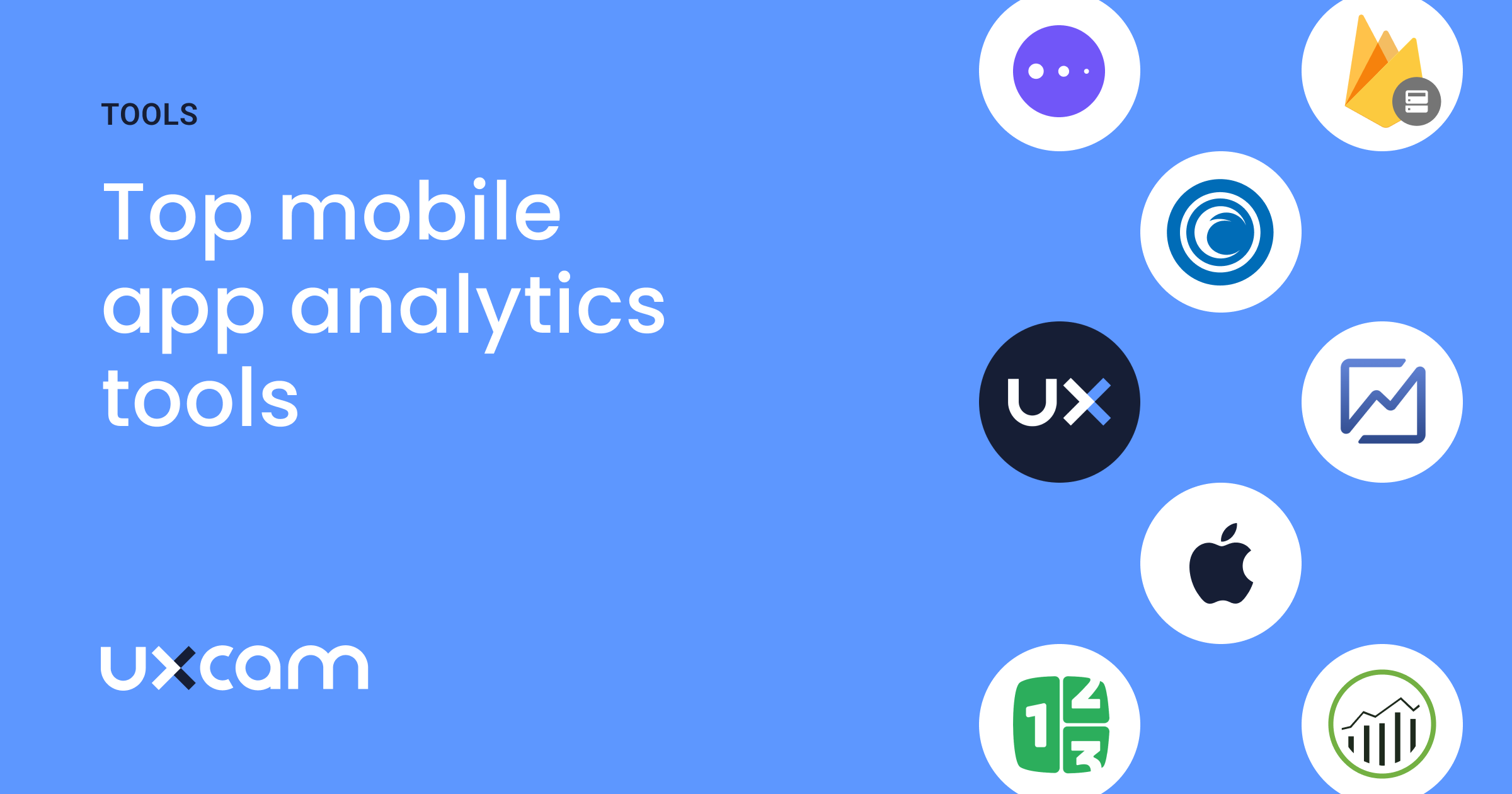Back to blog
4 MIN READ
Behavioral Segmentation Examples for Mobile App Products
PUBLISHED
29 August, 2023

Product Analytics Expert
According to the 80/20 rule, you can figure out how to attract more customers by studying the outcomes of your most lucrative customers. Behavioral segmentation helps you to do just that.
UXCam delivers precise user behavior analysis to help you uncover, understand, and segment behavior patterns. Keep reading as we examine behavioral segmentation, why it’s essential, and how companies use it.
What is behavioral segmentation?
Behavioral segmentation divides your users based on their in-app behavior. It’s a critical stage of user research to define the segments and understand the behavior in each. It helps product teams define their customer base further and focus on delivering value while attracting more prospects.
UXCam makes comprehensive behavioral segmentation easy. You can categorize users into groups like new, loyal, returning, or those on the verge of churning to help you find patterns that reveal what drives your users to convert, engage, and churn.
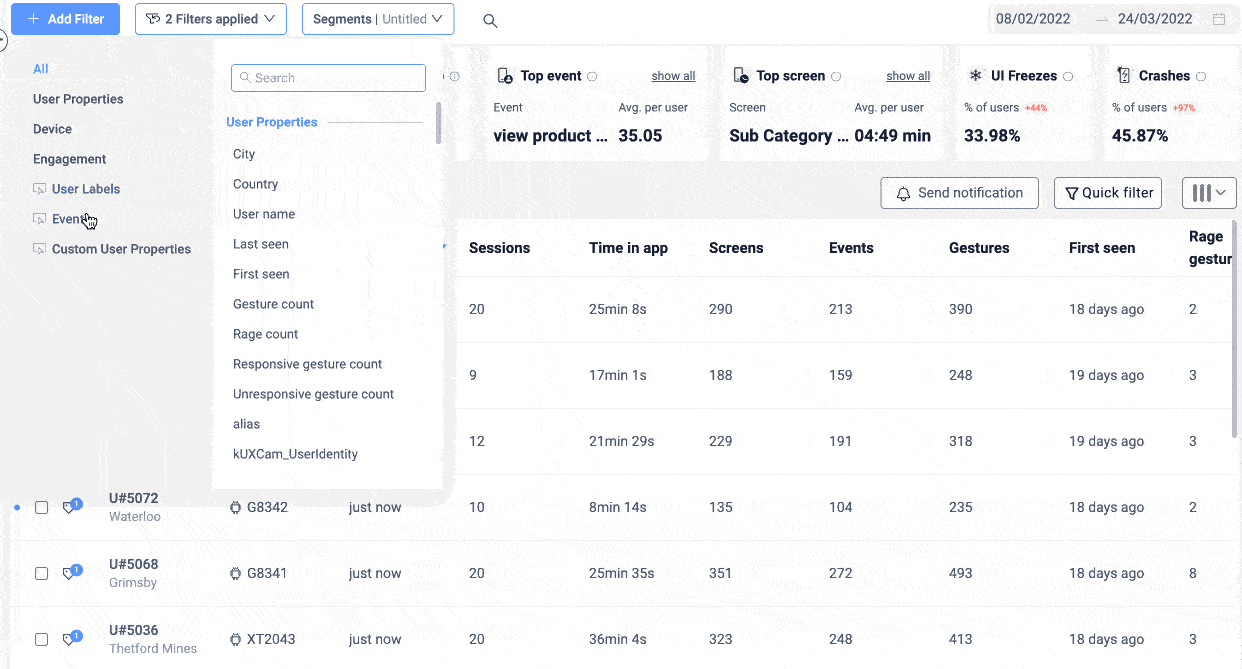
Why is behavioral segmentation important?
Targeting precision: This makes it easier for your teams to target different groups within your target customer base with offers that appeal to them and encourage them to convert. For example, consider implementing a touch of gamification to re-engage users who are slipping away.
To provide personalized experiences: Personalization offers brand uniqueness and makes users want to use your app. 70% of consumers say a company wins their business when they understand how they use their product. Behavioral segmentation helps you prove that through personalized touches such as timely and tailored recommendations.
Helps allocate budget and resources optimally: Allocate your resources to customers who are almost ready to buy, increasing your ROI, such as loyal customers who regularly return to your app and make purchases. With optimized targeting, you can spend your budget more efficiently.
Builds brand loyalty: When your customers feel they are more than a consumer of your business and that their needs are met, you’ll be a favored brand. Behavioral segmentation research supports teams in delivering top-notch customer satisfaction for lifetime value through product enhancements, precise targeting, and in-app personalization.
Types of behavioral segmentation
Purchasing behavior
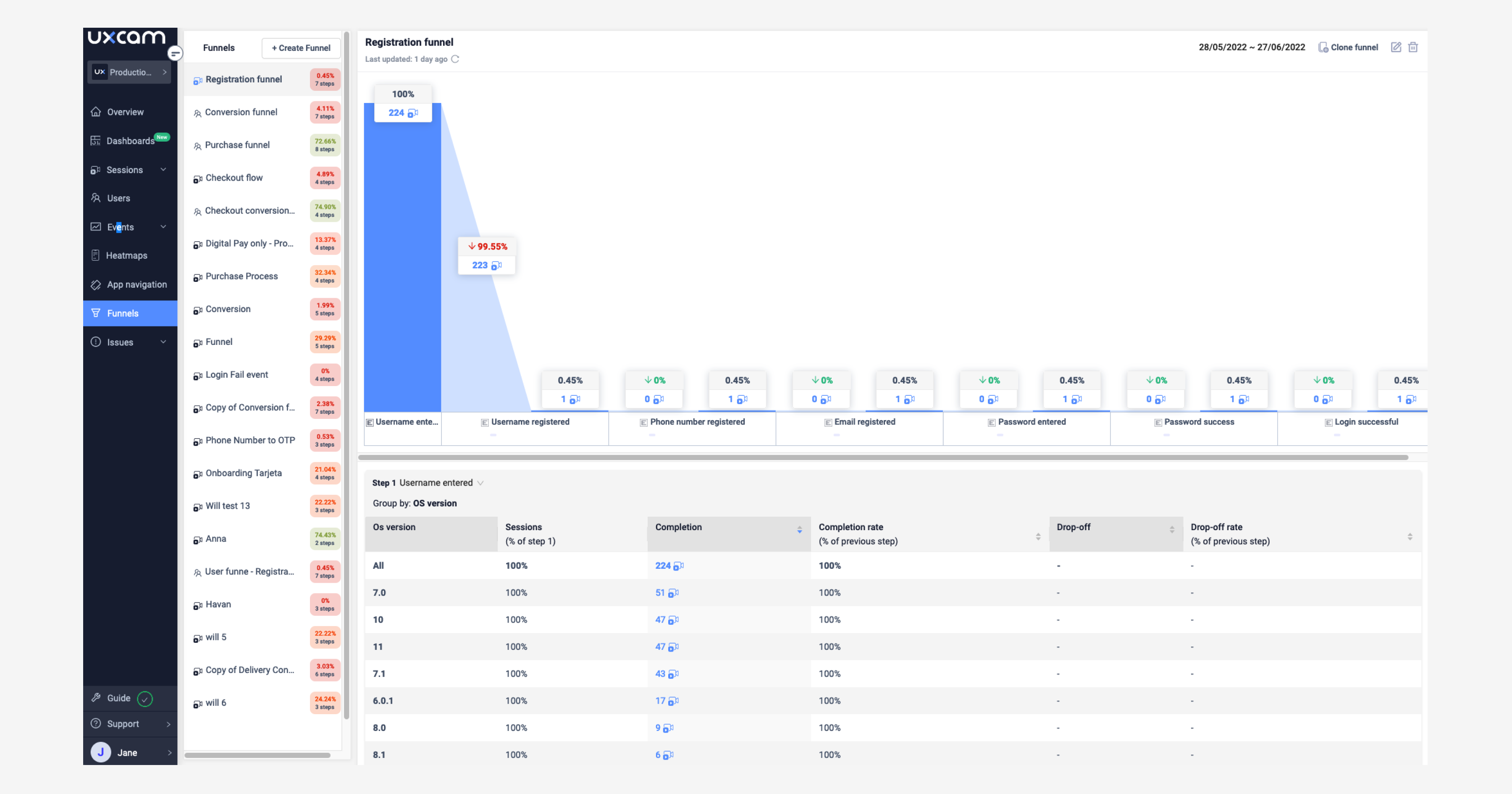

Purchasing behavior or customer buying behavior looks at uncovering groups of users that act similarly leading up to a conversion decision. It can include behavior like:
Search engine exploration or ads viewed before downloading the app
How people approach purchasing decisions
Any hindrances that prevent conversions
Customer loyalty
Customer loyalty looks at a customer’s level of commitment to the business because loyalty is far more profitable than acquiring new customers. According to research, a 5% increase in customer retention can boost profits by 25% to 95%.
Track customer loyalty to learn what fuels your customer’s allegiance and repeat purchases. This type of behavioral segmentation helps implement the 80-20 rule.
Customer journey stage
This groups your customers by where they are on their path to purchase. The data helps increase conversions by delivering more personalized experiences through timely, relevant messages that help lead them to the next stage of the customer journey.
The number of stages in a buyer’s journey varies, but it typically looks like this:
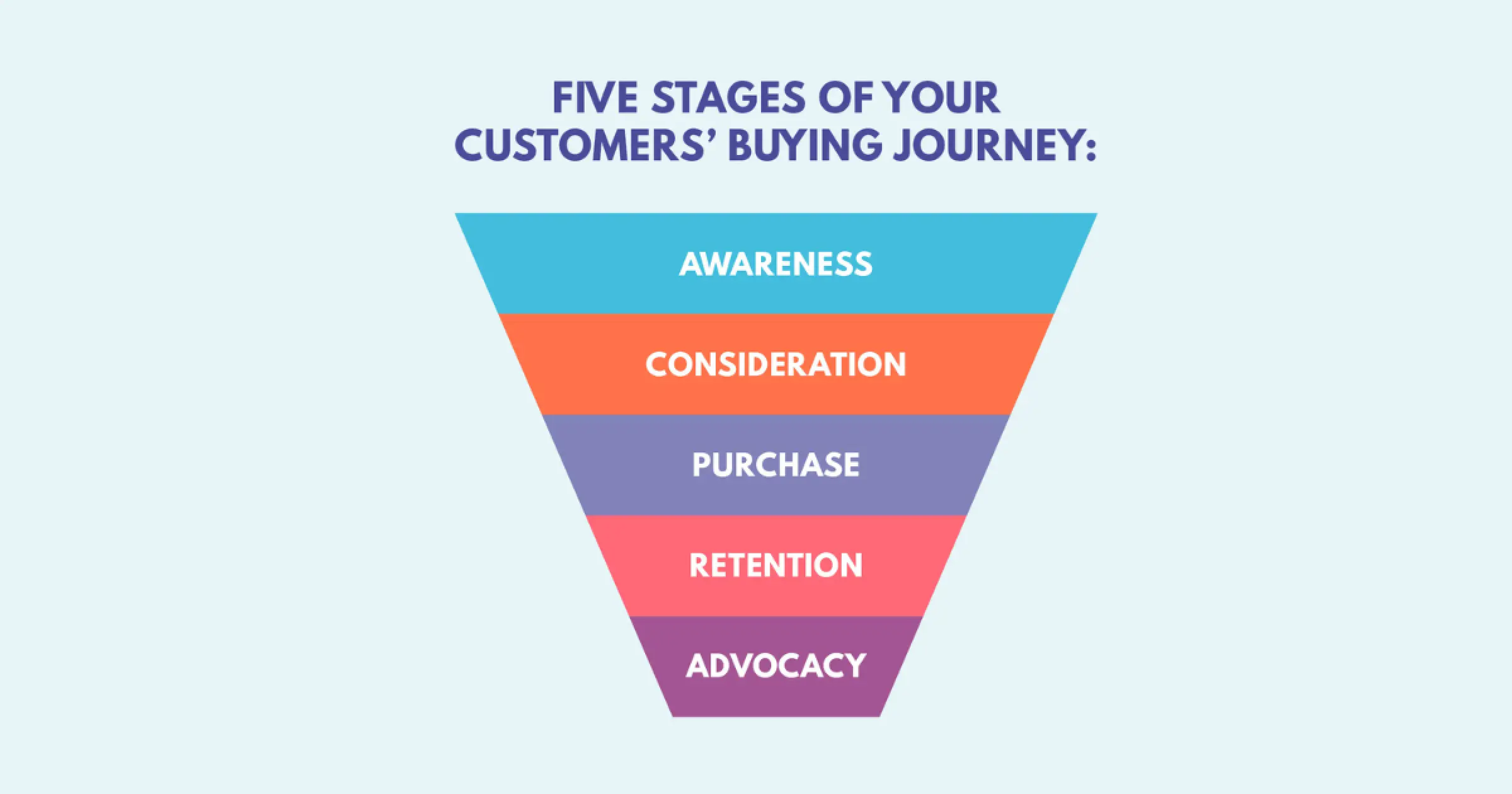
UXCam helps you get granular analysis on your customer’s in-app journey, understand flows and funnel analysis to see where they drop off, languish, and receive AI-suggested new conversion paths.
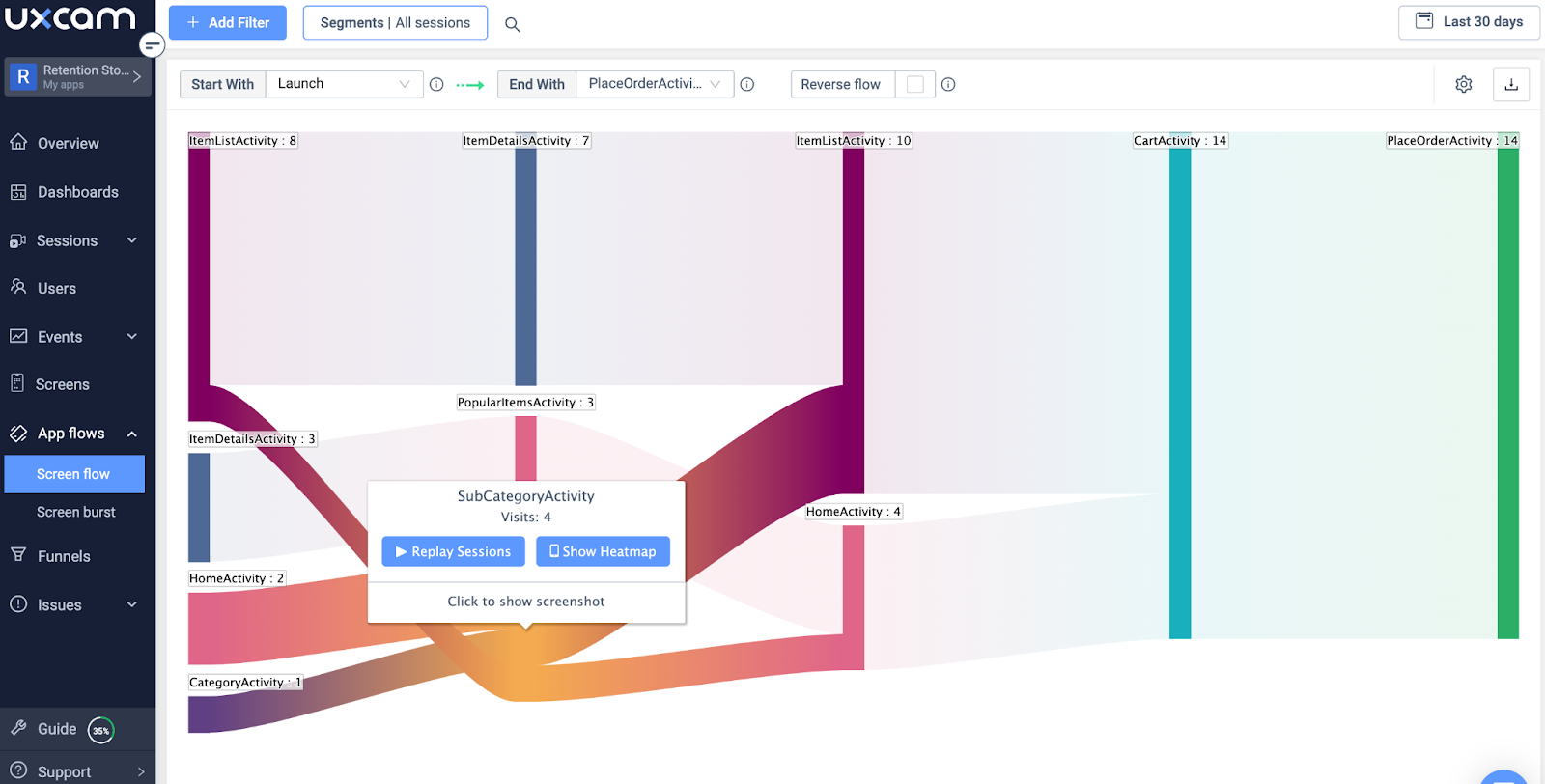

Customer usage
Customer usage grouping looks at your customer’s engagement, whether their usage is:
Light users: Occasional use with rare purchasing.
Medium users: Fairly regular use, making multiple purchases.
Super users: Intense users, biggest spenders.
Product teams should focus their design efforts on super and light users, who spend more occasionally than those accessing the app regularly.
Occasion or timing
This type offers precise targeting by looking at conversions for specific occasions or times, like during sale events, birthdays, or paydays. They can help teams learn habitual patterns and see when modifications are made at particular times during a routine, for example, during their Friday lunch break.
Some patterns may take a while to learn. However, they’ll go a long way in being prepared for preempted behavior.
Benefits sought
Benefits sought segmentation groups customers by what the group wants from your app. What is their specific reason? Once you know the value they expect from using your app, you can target them with distinct value propositions to meet their needs and convince them to stick with your brand.
Behavioral segmentation examples
Before we get into some examples, let’s highlight how UXCam helps you segment customer behavior for a comprehensive understanding. We offer session replays and heatmaps to dive deep into how users move through your app, including gesture details. Our powerful filtering includes standard exit screens, the impact of new designs, the differences between high and low lifetime value groups, and more.
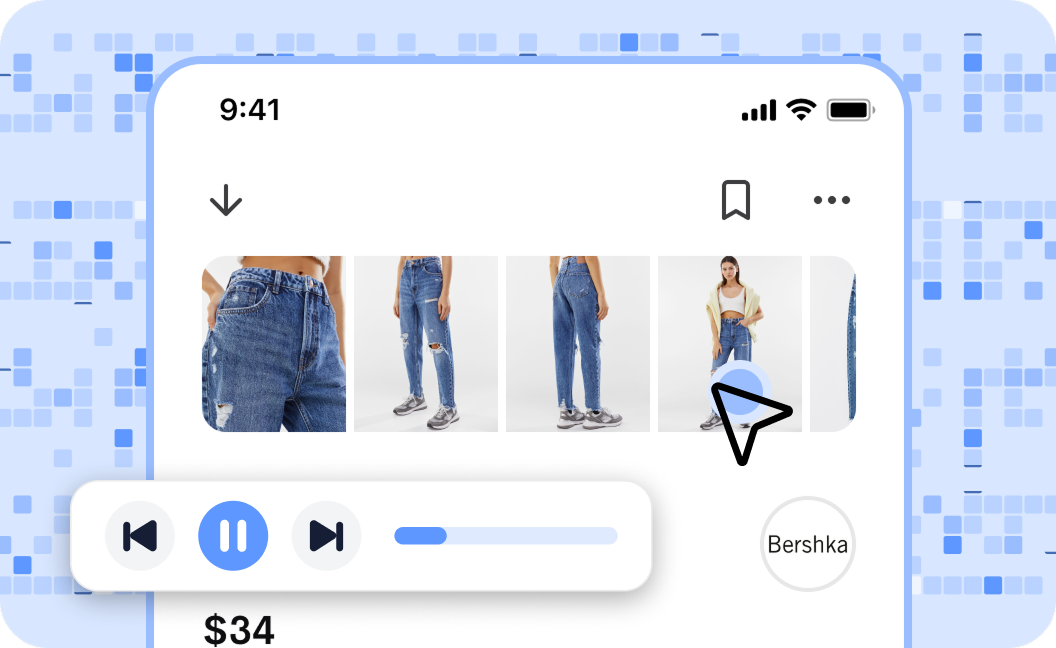

Olay’s Skin Advisor - benefits sought
Olay Beauty brand uses benefits sought behavioral segmentation to develop its Skin Advisor. It takes what customers say about their skincare routine and preferences to reveal their skin age, recommend suitable products, and guide product development for their target customers.
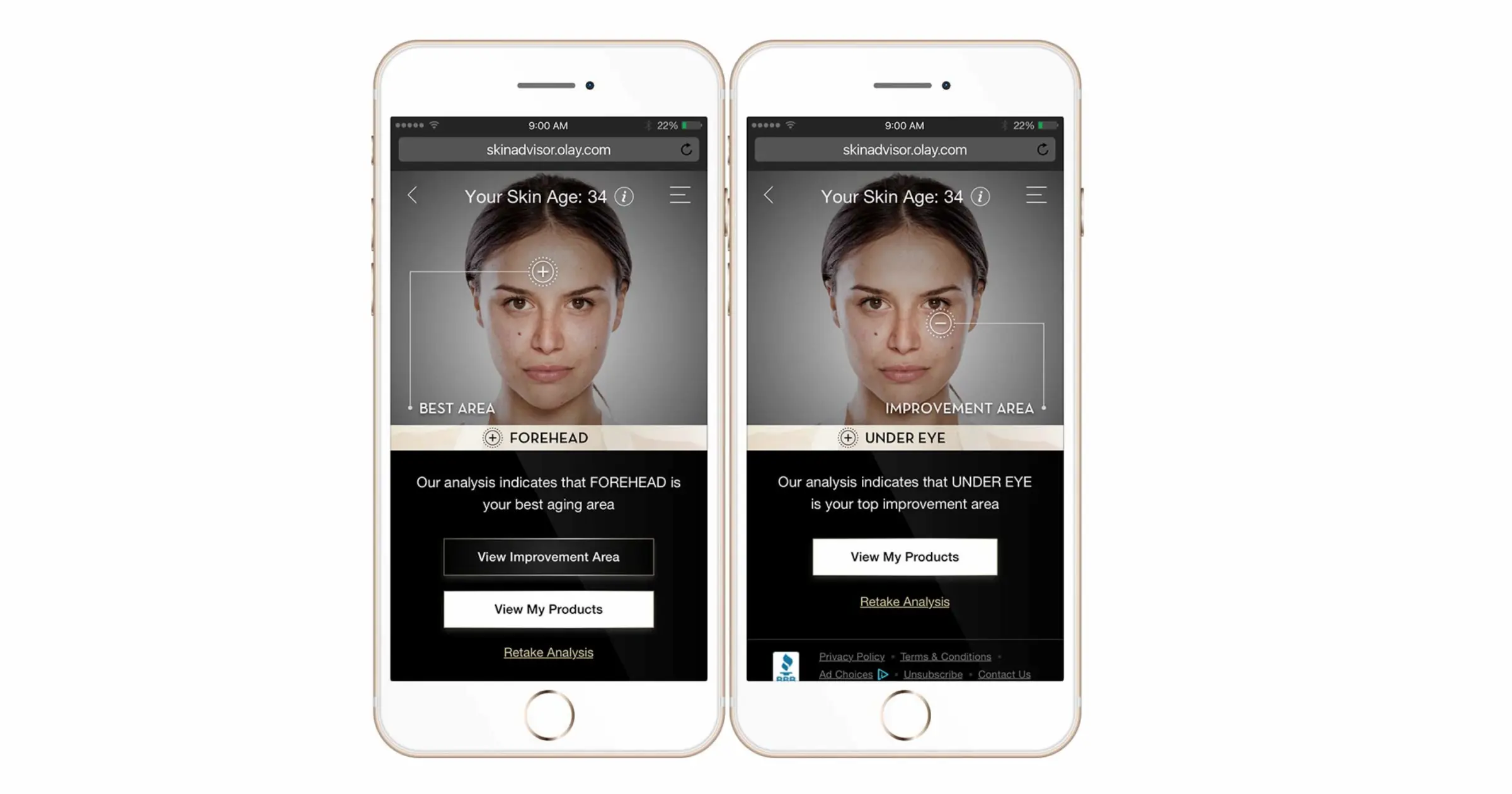
Macy’s Mother’s Day campaign - occasion or timing


Macy invited their customers to share pictures of their moms with the hashtag #MacysLovesMoms in their social media-based Mother’s Day campaign. And in turn, they’d donate $3 to charity for each post. This campaign created more engagement when people sought Monther’s Day gifts.
Starbucks Rewards - customer loyalty
Starbucks offers their customers perks when they earn stars—rewards such as free drinks and food. The more customers spend, the more stars and freebies they earn. Starbucks' loyalty program is one of the most successful, with approximately 29 million active members.
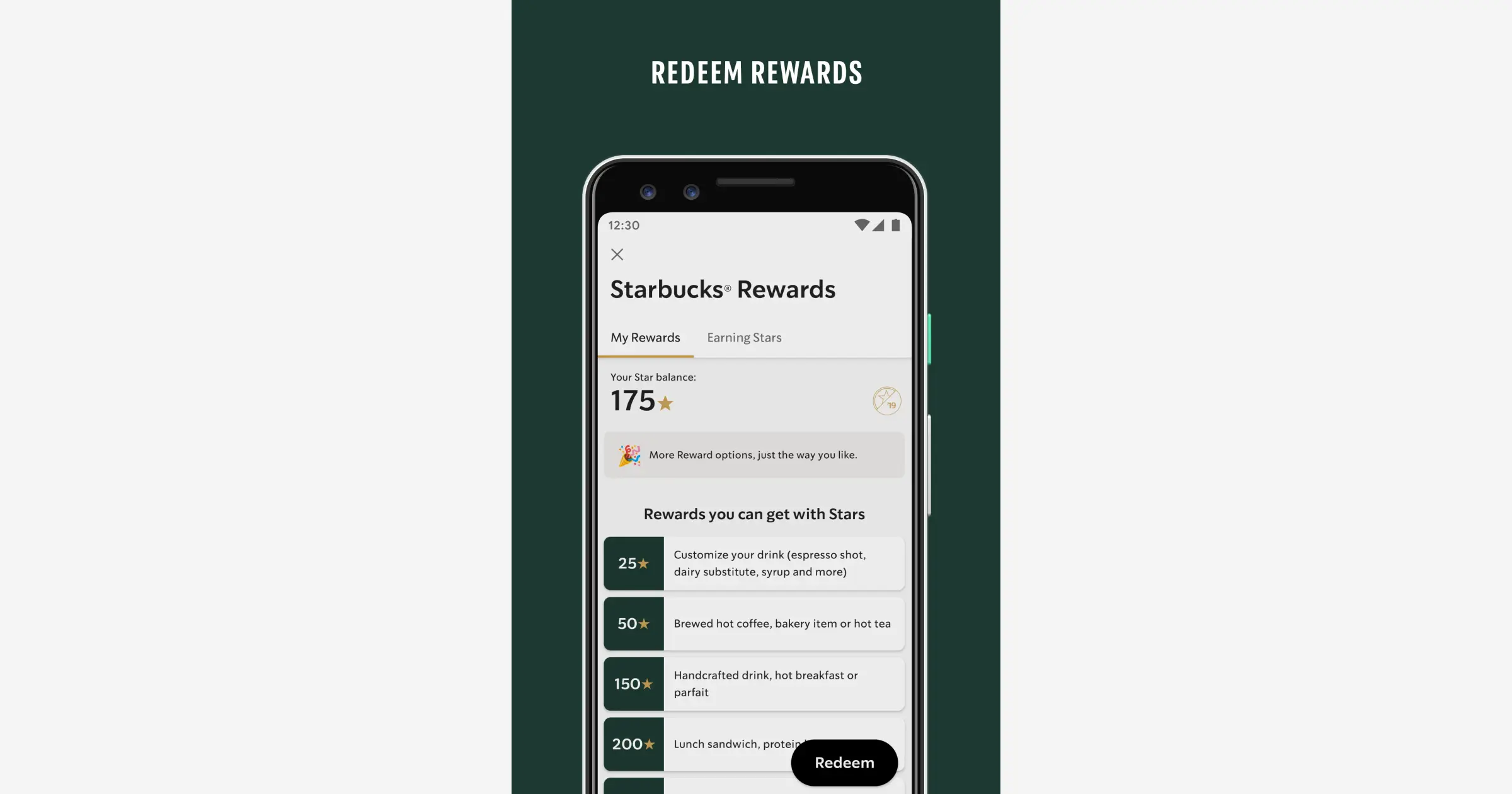
Use UXCam to Learn the Winning Formula
Behavior segmentation separates your users into groups of expected behavior characteristics to make it easier to understand your user base. One of the best things about segmentation is by studying what works for your most lucrative group, you can apply the winning formula to keep customers spending and attract more of the same.
UXCam uses a Google-approved, lightweight SDK to collect real-time data on user behavior for accurate behavior segmentation. Sign up today to start your free trial.
Related Articles
How to conduct a mobile app user behavior analysis
5 best behavioral analytics tools & software for mobile apps
AUTHOR

Tope Longe
Product Analytics Expert
Ardent technophile exploring the world of mobile app product management at UXCam.
What’s UXCam?
Related articles
Tool Comparisons
Smartlook vs UXCam: Which is the better mobile app analytics solution for modern teams?
Detailed comparison of Smartlook and UXCam for React Native, Flutter, iOS, and Android apps. See SDK differences, session replay quality, and why UXCam is the stronger choice for mobile...

Begüm Aykut
Growth Marketing Manager
App Analytics
Mobile App Tracking: Practical Guide & Best Tools [2026]
The best tracking tools for mobile...

Jonas Kurzweg
Product Analytics Expert
Curated List
Top 19 Mobile App Analytics Tools in 2026
Discover the top mobile analytics tools in 2026. Compare features, pricing, and reviews to choose the right platform for app tracking, behavioral insights, and data-driven...

Jonas Kurzweg
Product Analytics Expert

